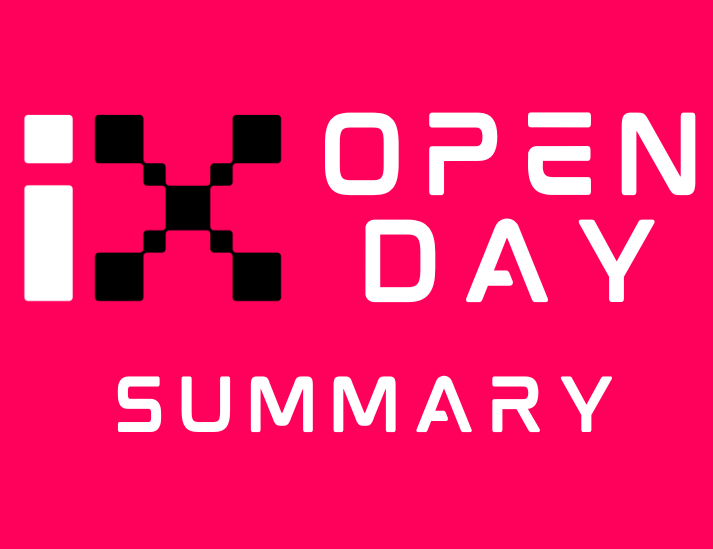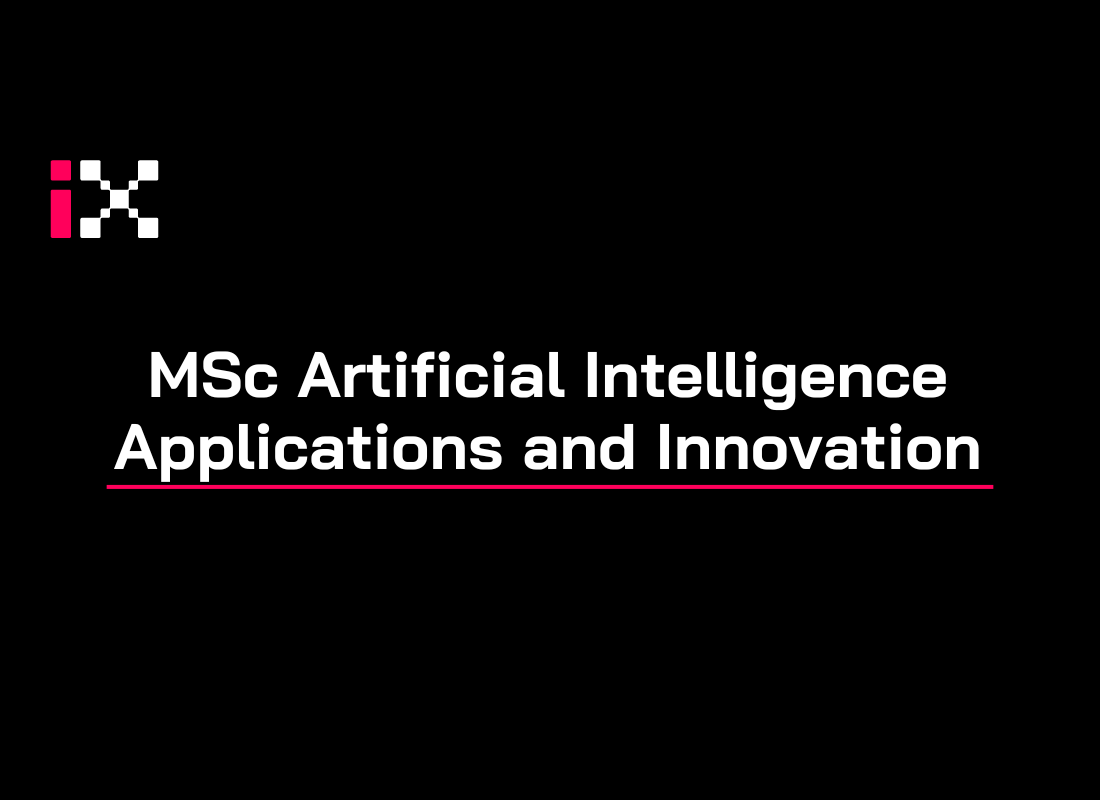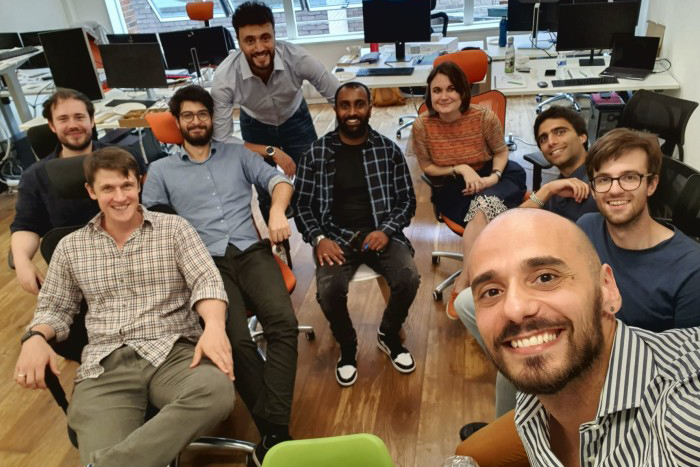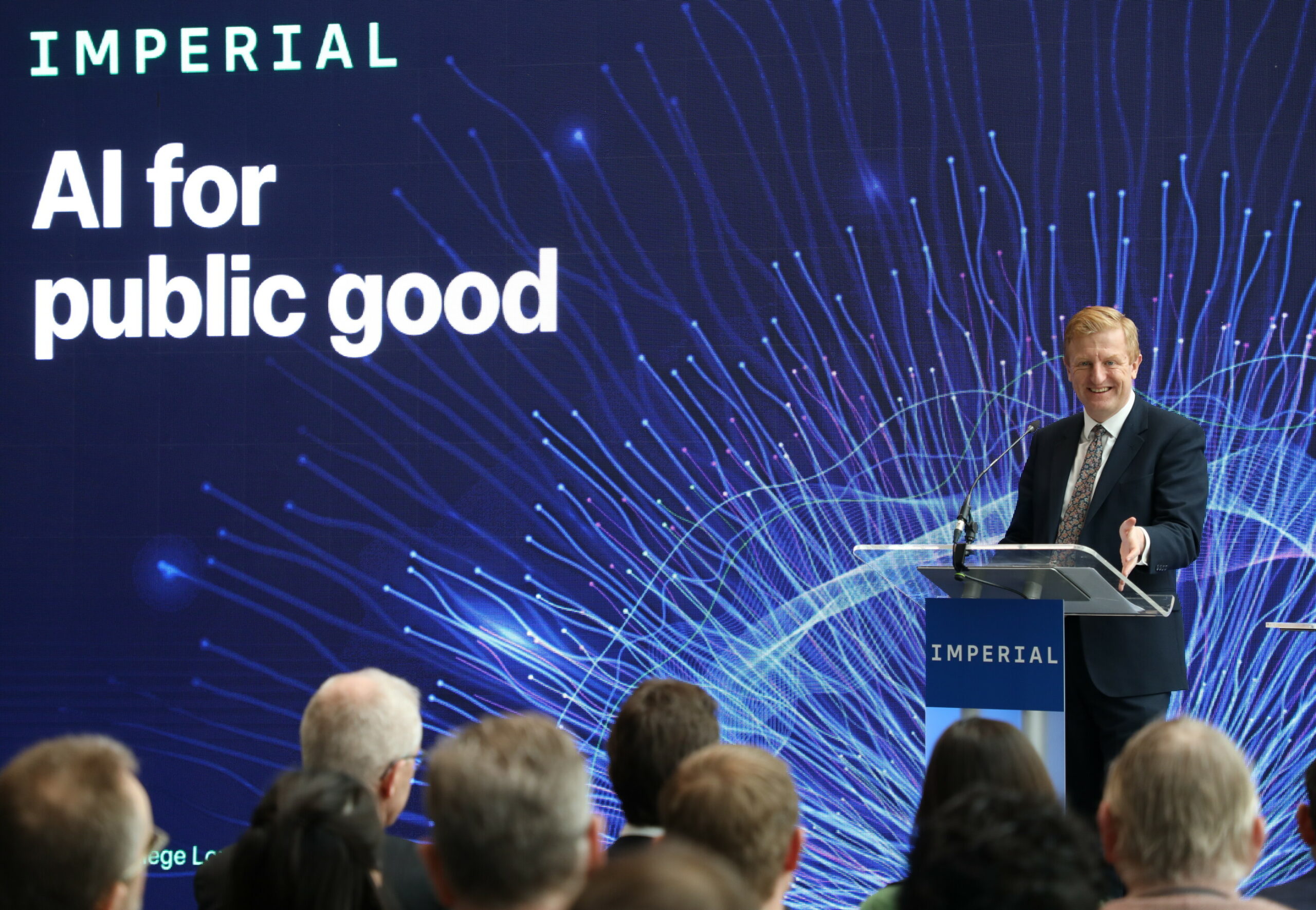
“What are the risks of creating a new generation of digital humans?”, “Will we need AI psychologists?”, “Can AI help us predict certain diseases?”, “Will digital personal doctors replace GPs in the future?”, “Who should take responsibility for the decisions made by AGI models?” – these are just some of the fascinating questions asked during the first I-X Open Day. On 3 July 2024, nearly 180 participants had an opportunity to listen to excellent keynote lectures, engage with roundtable panels on the latest developments in AI across various sectors, experience exciting lab demonstrations, learn about the works of PhD and Early Career Researchers during the Poster Presentation Sessions, and exchange ideas with AI and ML specialists from academia and industry during the networking sessions. The event was also a chance to see what it means in practice that I-X serves as a blueprint for the university of the future.
Speaking of the importance of the Open Day, Professor Eric Yeatman, the Chair of I-X, said:
“The Open Day was a great opportunity not just for our guests to learn about I-X and the exciting work going on here, but for us all to really work together to discuss and debate the issues and opportunities in AI, and to build relationships for future collaboration.”

The future of AI
At the centre of our Open Day were outstanding lectures delivered by Professor Stefanos Zafeiriou and Professor Daniel Rueckert. In his keynote, Professor Zafeiriou discussed the creation of photorealistic digital humans using generative models. The lecture addressed the difficulties in training algorithms to recreate humans based only on textual input, as well as explored the challenges to achieving photorealism when digitally re-creating faces and hands. In his talk, Professor Zafeiriou also explored how the work on reanimation and control of avatars could contribute to building a more accessible world, for instance, through the development of translation models that will enable avatars to translate spoken language into sign language in real-time.
The question of productive uses of AI was also at the centre of Professor Rueckert’s talk, “Deep Learning in Medical Imagining: Challenges and Opportunities”. Focusing on medicine (particularly radiology), Professor Rueckert discussed the potential of AI in diagnosis, screening, and monitoring processes. The lecture explored how we can use deep learning to reconstruct high-quality medical images from undersampled images, and how the automated tools can help us analyse data more effectively and generate new hypotheses for disease development. Professor Rueckert also addressed the challenges to achieving the full potential of AI in healthcare, including the concerns around privacy, data scarcity, and the risk of replicating certain biases.


The discussion on the safety and challenges of building robust AI models was also explored during the first roundtable panel dedicated to Artificial General Intelligence (AGI), chaired by Professor Alessandra Russo. The panel, featuring Dr Charles Phiri (JPMorganChase), Dr Eleonora Giunchiglia, Dr Edward Johns, and Dr Dandan Zhang, focused on the opportunities and challenges that AGI poses. Dr Phiri and Dr Giunchiglia discussed the regulatory and ethical issues linked to AGI, the risks of implementing it on a large scale, and the need for a holistic and interdisciplinary approach to bring safe AI solutions. Dr Johns and Dr Zhang provided insights into the application of AGI in robotics and healthcare, the technical difficulties in assessing the AI agent’s capabilities, and the impact of robotics and AI on the workforce.

The latest developments in the field of artificial intelligence and their practical implications for various sectors were also discussed during the second roundtable panel, “AI in Practice: Lessons from the Field”, chaired by Professor Christopher Tucci. The panel featured experts from industry and academia: Dr Virginia Acha (MSD), Tim Carter (Flawless), Dr Antoine Cully, and Professor Eiman Kanjo, who shared insights on the applications of AI in their respective fields. Dr Acha spoke about the use of AI in the pharmaceutical sector, focusing on drug discovery; Tim Carter discussed the use of AI to produce highly realistic translations (dubbing) of films; Dr Cully highlighted the practical uses of AI in robotics and the ways ML can help create more resilient robots; finally, Prof. Kanjo explored the field of tiny machine learning and the applications of AI models in small personal devices. The multi-industry nature of the panel encouraged broader reflections on AI in practice, including discussions on the current regulatory landscape, the impact of new technologies on the labour market, and the importance of data privacy in machine learning.
Thinking about the panel, Prof. Chris Tucci reflected:
“Fostering cross-disciplinary conversations is crucial for advancing artificial intelligence, as it drives innovation addressing complex challenges and enables the integration of different perspectives and expertise that we need to make real progress. Insights from industry are essential to understanding the practical applications and real-world impacts of AI and ensure that academic research remains relevant and grounded in real-world needs. By bridging the gap between academia and industry, we can better navigate the regulatory landscape, address ethical concerns, and improve AI technologies for broader societal benefit. This panel contributed on all those fronts!”

Robots in Action & Human Intelligence

While the I-X Open Day provided a platform for many fascinating discussions, it also spotlighted practical demonstrations of AI applications. Participants had a unique opportunity to learn about the latest work from the Networks and System Lab, the Personal, Assistive, and Intelligent Robotics (PAIR) Lab, the Multi-Scale Embodied Intelligence Lab, and the Sense Robotics Lab.
Featuring innovations in the Internet of Things and robotics, the demo sessions offered a glimpse into the practical uses of AI, showcasing the latest works of Professor Hamed Haddadi (NetSys lab), Dr Nicole Salomons (PAIR Lab), Dr Dandan Zhang (Multi-Scale Embodied Intelligence Lab), Dr Sen Wang (Sense Robotics Lab), and their research groups.
Dr Dandan Zhang said:
“The I-X Open Day offered an invaluable platform to highlight the practical applications of our research and engage researchers interested in AI and its diverse applications. The demonstrations and exhibitions attracted numerous visitors, particularly those fascinated by intelligent robots. We are delighted to know that such events ignite curiosity among students, foster engagement with industry partners, and express our strong will for further development of advanced AI innovations.”
The works of PhD students and Early Career Researchers were also spotlighted through the research poster competition. During two sessions chaired by Dr Chen Qin which featured nearly forty posters, competition judges and participants had a unique opportunity to speak with the future AI experts about their fantastic research. The winners were announced during the closing ceremony hosted by Dr Guang Yang, with Dr Alice Malivert and Xiaodan Xing awarded the first prizes, and Yaxin Mo and Daniella Pretorius named runners-up.
Speaking of the I-X Open Day as a platform to showcase the work of young academics, Dr Yang said:
“The event offered invaluable opportunities for emerging scholars to share their work, engage with different perspectives, and enhance their visibility in the academic community. Such experiences are crucial for the growth and development of young researchers.
The Open Day Impact
With almost 300 registrations, the I-X Open Day brought together academics from Imperial and other universities across the UK, representatives from various industries (technology, biotech, defence, finance, healthcare), policy makers, representatives of local authorities and governmental bodies, education professionals, and local residents. It served as a fantastic opportunity to spotlight the cross-cutting edge research conducted at I-X and highlight the potential of impactful multi-disciplinary collaborations. However, this success would not have been possible without the involvement of the entire I-X Faculty as well as support from our Business Partners, Flawless and Fetch.AI, other partner organisations, including London Data Week (sponsored by the mayor for London and Alan Turing Institute, of which the Open Day was a part), AI SuperConnector (Candice Middleton and Hiten Thakrar), and the Imperial Enterprise team (Julia Zanghieri and Redvers Lee).
Thinking about the impact of the Open Day, Dr Anna Radomska, I-X Head of Operations, said:
“The event was an excellent opportunity to showcase our groundbreaking research, interdisciplinary outlook, and commitment to fostering innovation. The positive feedback on the event we received is thanks to the support from our entire research community and partners.”
A recording of the conference can be found on the I-X YouTube Channel under the I-X Open Day Playlist.
This event was part of London Data Week.





